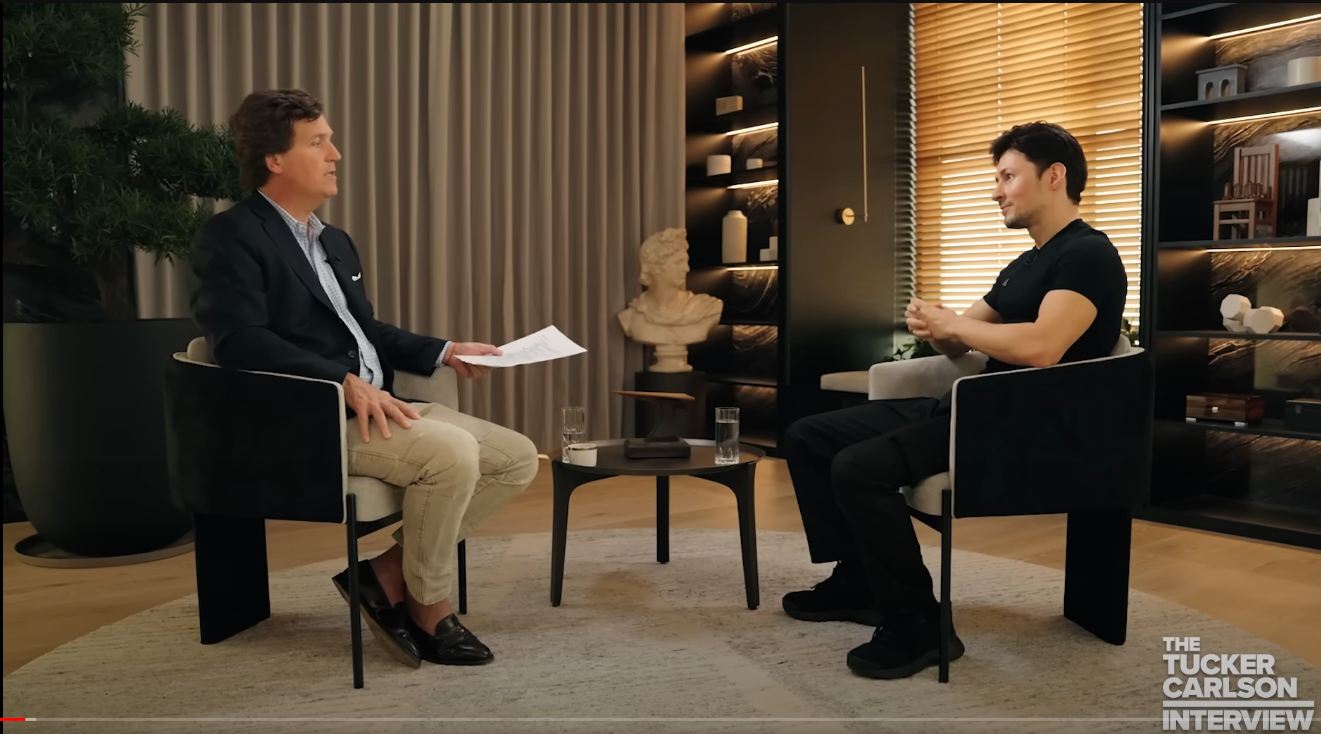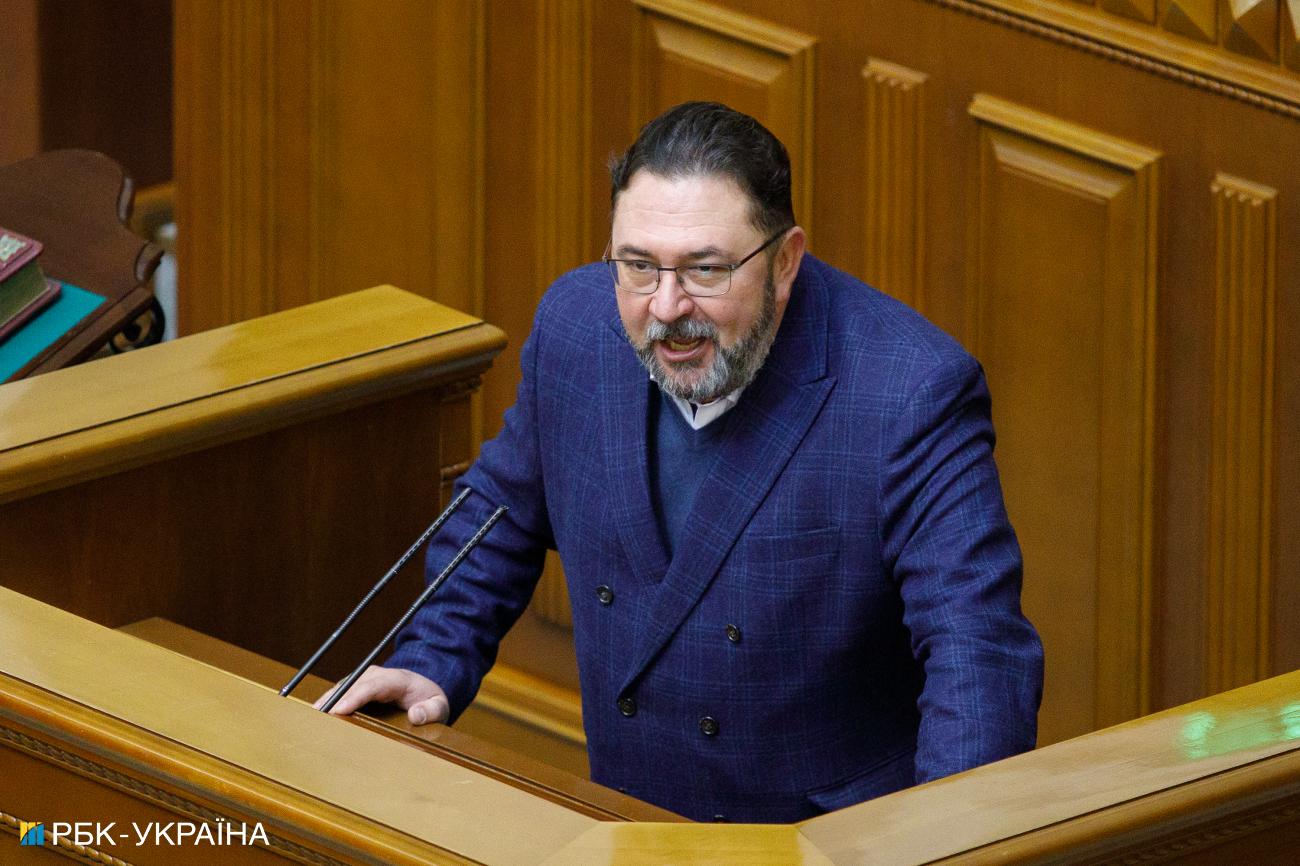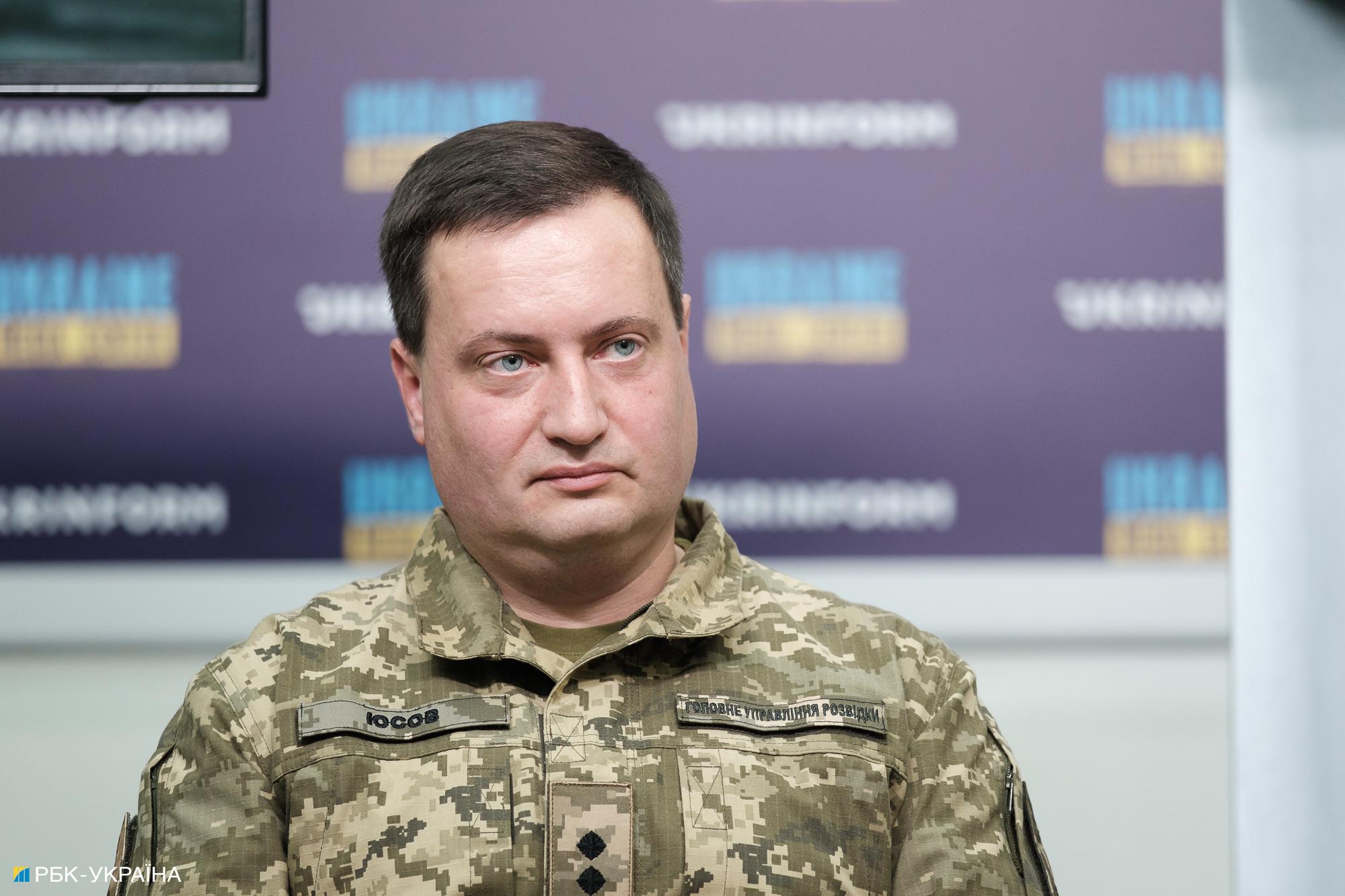Will Ukraine ban Telegram? Authorities weigh options amid Durov's arrest
 Telegram founder Pavel Durov (photo: RBC-Ukraine collage)
Telegram founder Pavel Durov (photo: RBC-Ukraine collage)
Earlier this year, Ukrainian authorities considered options for blocking Telegram. Two months ago, the administration in Bankova Street decided against taking radical steps. However, the arrest of Telegram founder Pavel Durov in France may reignite this discussion. More details - in the article by RBC-Ukraine below.
Contents:
-
Arguments for and against banning Telegram
-
Anonymous Telegram channels as a method of government influence
The arrest of the founder of the Telegram messenger, Pavel Durov, in France has shaken social networks and the media, including in Ukraine. It has once again brought to the forefront whether this extremely popular messenger should be banned or strictly regulated.
Durov is accused of 12 crimes, including complicity in drug distribution, fraud, cybercrimes, and refusal to provide law enforcement with information necessary for investigations. The main complaint of the French authorities is that Telegram does not moderate content with criminal elements, allowing illegal trade and other offenses to occur through the messenger.
These accusations have also been directed at Durov in Ukraine. Following his arrest, supporters and opponents of a ban on Telegram have begun to present both old, well-known arguments and new ones for and against the messenger.
Arguments for and against banning Telegram
Critics argue that Telegram has always been a "dark horse" (unlike its competitors like Facebook Messenger and WhatsApp), citing Durov's Russian origins, his repeated concessions to Russian security services (such as blocking certain channels), and the unclear history of Telegram's ban in Russia, which was eventually lifted by the Russian authorities themselves. They also highlight the popularity of anonymous Telegram channels that spread fake news and disinformation, including content favoring Russian interests.
On the other hand, opponents of a ban note that Durov has long since left Russia, that he has faced pressure from the Russian authorities, and that Telegram is an irreplaceable means of communication due to its convenience and reach. They argue that if Ukraine loses the "Telegram wars," it is not because of the platform itself but because enemies are better at using its tools.
The arrest of Durov has sparked new arguments in favor of a ban. If the West is so concerned about the dangers posed by the messenger, perhaps Ukrainians should follow their example. Additionally, the arrest has provoked outrage from the Russian government, suggesting that if the Kremlin regime is defending Durov, then Ukraine’s interests must lie in the opposite direction. Moreover, just days before the arrest, there were reports that Durov allegedly flew to Baku specifically to meet with Vladimir Putin, who was visiting Azerbaijan, though Putin reportedly declined the meeting.
Numerous pro-war Z-channels on Telegram have also exacerbated the situation. These channels are now circulating videos claiming that "Russian military operations are being managed through Telegram." A particularly popular quote from one of the "Z-bloggers" suggests that, essentially, the "head of communications for the Russian Armed Forces" was arrested in Paris. Among the notable figures who expressed outrage over Durov's arrest is American television host and Trump supporter Tucker Carlson, who is also known for his anti-Ukrainian stance.

Tucker Carlson interviews Pavel Durov (photo: Tucker Carlson's YouTube channel)
These discussions have been ongoing in Ukraine for many years since Telegram began gaining popularity. With the start of the full-scale war, the messenger has seen explosive growth in its user base. Government agencies—from local councils to the president—have actively developed their own Telegram channels, with many of them using the messenger as their primary means of communication with the public.
Military content without minimal censorship (including images of dead Russian soldiers and destroyed equipment, as well as videos and photos from missile strike sites) has allowed channels that were relatively unknown before February 24 to gain millions of followers, surpassing traditional online media outlets. According to research by Opora, three out of four Ukrainians use social networks to obtain information, with Telegram leading the way at 78.1%.
Discussions about banning the messenger in Ukraine usually come in waves: a government representative makes a loud statement on the topic (or there is some scandal related to Telegram), followed by a few days of active discussion, which then dies down until the next time.
"There is no information that Durov has renounced his Russian passport. He is now a citizen of the UAE, but this does not require renouncing Russian citizenship. Therefore, it is likely that Russia still has some control over Telegram, and we have no guarantees that the information of individual users there is protected and not being handed over to Russian intelligence services," said the Chairman of the Committee on Freedom of Speech, Yaroslav Yurchyshyn, in an interview with RBC-Ukraine in April this year.
At the beginning of August, a statement by Mykyta Poturaiev, the Chairman of the Committee on Humanitarian and Information Policy, caused a stir. In an interview with RBC-Ukraine, he said, "When 80% of your population uses an unmoderated social network, particularly one that is deliberately unmoderated, whose leadership refuses to communicate with your state, and for which there is enough evidence to suggest that it remains affiliated with Russia and under the influence of Russian security services, this is a serious mistake that, I repeat, will be costly." He added that the best solution, in his opinion, is for Telegram to "establish a dialogue" with the Ukrainian state, or the state will have to shut it down.
In contrast to members of the Rada, officials from Bankova and the Cabinet have not expressed such harsh rhetoric about the popular messenger. Following Durov's arrest, Yurchyshyn again spoke out in favor of stricter Telegram regulation.
"Globally, stricter regulation of Telegram is being implemented. We can and should do this much sooner. After all, we are on the front line. Nothing will stop a decision that should have been made back in 2022," Yurchyshyn wrote on his Facebook page.
In reality, as confirmed by various RBC-Ukraine sources in the government, no political decision has been made to ban Telegram. However, a few months ago, this issue was indeed discussed at a high level, and an analytical document on the pros and cons of a ban was prepared for President Zelensky, leading to a decision to refrain from any drastic actions.

MP Mykyta Poturaiev (photo: Vitalii Nosach / RBC-Ukraine)
Moreover, there is indeed some contact between the Ukrainian authorities and the Telegram administration, though not at an institutional level but on a personal one. This was confirmed by several unrelated sources to RBC-Ukraine. Occasionally, this communication channel allows for resolving specific issues, particularly those related to blocking harmful channels.
"If a decision were made to block Telegram, technically, it could be implemented quite easily. Try downloading the VKontakte or Odnoklassniki app from the Apple Store or Play Market in Ukraine. You won't find them there anymore. The same would happen with Telegram," one of the informed government sources told RBC-Ukraine.
According to another source in law enforcement agencies, one option considered was to persuade or force Durov, under the threat of blocking the messenger, to open a legal entity in Ukraine—essentially, a company office in our country through which Ukrainian authorities and law enforcement could promptly resolve issues related to the messenger.
"This option would compel Telegram to operate within the framework of the law. The issue of anonymous channels can be resolved by amending the media law, essentially equating channels with media outlets and requiring them to disclose their beneficiaries. If the Rada is very concerned about this, they can initiate these changes themselves," the source speculates.
So far, none of the discussed options have been implemented. Neither the tough option of blocking nor the more lenient story of state regulation.
Opinions on banning Telegram are divided even among Ukrainian intelligence services. The messenger is needed by them for various information and psychological operations (IPSO) as well as for communication with Ukrainians in occupied territories. The well-known analogy with the "ban on kitchen knives" applies here—if someone once stabbed another person with such a knife, it doesn't mean kitchen knives should be banned altogether, as they are typically used for many useful household functions. The issue is not with the tool but how it is used.
"When the Russian invasion began, Telegram, albeit not super promptly, responded to our requests and blocked Russian chatbots and channels that posed a threat to Ukrainian forces. Later, when the Russians realized that 'Kyiv in 3 days' wasn't happening, they began investing heavily in the information component, including efforts to block our chatbots on Telegram. At some point, it became more difficult for us and the Russians because Durov decided to play the role of neutral Switzerland," one of the interlocutors recalls.
According to him, Telegram's technical features allow for relatively easy communication with the Ukrainian side from occupied territories despite Russian intelligence services. Not to mention the basic safety for pro-Ukrainian citizens in occupied territories when viewing news from Ukrainian resources using the Telegram app.
However, Andrii Yusov, a representative of the Defense Intelligence of Ukraine, says that the harm from the messenger's operation in Ukraine for Ukrainian intelligence services outweighs the benefits. Besides the fact that Russians use Telegram to adjust fire on Ukrainian positions and recruit agents, the platform's administration is much more willing to cooperate with the Russian side, Yusov claims.

DIU representative Andrii Yusov (photo: Vitalii Nosach / RBC-Ukraine).
"Telegram's speed of response and interaction with Russian authorities and intelligence agencies is not at all comparable to the existing communication between Telegram and the state of Ukraine," Yusov explained earlier, questioning Durov's "neutrality."
Anonymous Telegram channels as a method of government influence
If Telegram were banned, the government would also lose one of its favorite methods of working with the electorate—through numerous Telegram channels directly or indirectly administered by the Presidential Office and its satellites. Interestingly, in recent months, several media team members from the government have expressed rather critical views on this technology to RBC-Ukraine.
First, because the platform itself is still uncontrollable, and at some critical moment (for example, at the start of hypothetical ceasefire negotiations), the controlled channels could be blocked, while enemies would unleash the full force of their IPSO on the large Ukrainian audience, spreading, for instance, some betrayal narrative.
Second, the loyalty of many channels managed indirectly through intermediaries cannot be fully trusted—today, their administrator is loyal, but tomorrow, they could suddenly change "masters"—such stories circulate in political corridors. Finally, there's a more general point—artificially creating a network of anonymous channels can lead to a false illusion of control over the media space. At the same time, many are trapped in their bubble, with an artificially inflated bot audience and no real influence on societal moods.
"This is end-of-the-last-century thinking. Back then, it was believed that printing and distributing a bunch of newspapers would have an impact, and now Telegram channels play the role of those newspapers," one government interlocutor shared his thoughts on the matter.
However, in any case, at the highest level, it is currently believed that the benefits of Telegram outweigh the risks of using the platform. Whether this will change shortly will likely become clear based on how Durov's relations with French justice develop.
The creator of the messenger will likely have to stop playing the mysterious figure who considers himself above any rules and agrees to some content regulation. A light version—opening a Telegram office in Kyiv, with the possibility of direct contact with Ukrainian authorities and promptly resolving issues that arise, not through personal connections but through specifically authorized individuals with names and surnames—seems like a very realistic solution to the Telegram problem in Ukraine.

